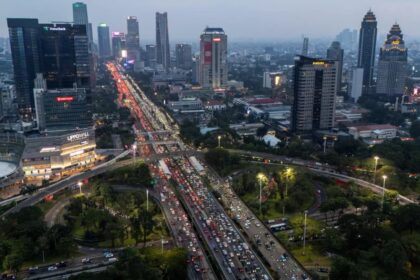Why Malaysia is moving to restrict teen social media
Malaysia will bar residents under 16 from signing up for social media accounts starting in 2026, a national shift aimed at making the internet safer for children. The plan will rely on electronic know your customer checks, known as eKYC, to verify ages at the point of registration. The change comes alongside a broader package of protections under the Online Safety Act, scheduled to take effect on January 1, 2026. The Ministry of Communications has signaled that major platforms should prepare their systems next year so that the age limit can be enforced once the law takes effect.
- Why Malaysia is moving to restrict teen social media
- How the ban will work: eKYC and age checks
- What risks the policy aims to address
- How Malaysia compares with other countries
- Privacy, data protection and public concerns
- Enforcement challenges and likely loopholes
- Impact on families, schools and tech companies
- What happens next and how to prepare
- What to Know
Officials say the move is designed to reduce exposure to harms that loom large in the lives of connected children, including cyberbullying, sexual exploitation, scams that target teenagers, and addictive engagement loops that keep young users scrolling for hours. The Cabinet raised the minimum age for social media accounts from the previously proposed 13 to 16 in October, framing the step as a child protection measure rather than a tech restriction for its own sake.
Communications Minister Fahmi Fadzil, who has led the discussions with industry, said the decision reflects a growing consensus in government that stronger guardrails are needed.
Communications Minister Fahmi Fadzil said: “That was the Cabinet’s decision, to prohibit those under 16 from having social media accounts. We expect platforms to be able to implement this by next year.”
Malaysia has already tightened oversight of large digital platforms. Services with more than 8 million users in the country are required to hold a license under a regulation that took effect in January, part of a wider response to harmful online content ranging from illegal gambling to posts touching race, religion and royalty. The under 16 rule adds a child safety lens to that enforcement push.
What will change in 2026
Under the new approach, any attempt to open a social media account will require verified proof that the user is at least 16. Self-declared birth dates will no longer be enough. Platforms will need to connect their sign-up flows to identity verification that checks against official credentials.
Malaysia plans to track how other countries implement teenage limits, then tailor enforcement to local conditions. The government has pointed to Australia, which is rolling out a nationwide ban on social media accounts for users under 16 and preparing to deactivate accounts that fail age checks. Several European countries are testing ways to verify ages securely. Policymakers in Kuala Lumpur say those efforts will inform local rules and technical standards.
How the ban will work: eKYC and age checks
Age-based access control rises or falls on identity checks. eKYC is a digital process used in banking and telecom services to confirm that a person is who they claim to be. In this case, eKYC would confirm that a would-be user is at least 16. The Ministry has said platforms will need to ask users to submit official identification for verification, such as the MyKad national identity card, a passport, or the national MyDigital ID.
What is eKYC in practice
eKYC typically combines document authentication and a check that the person presenting the document is real. A standard flow might ask a user to scan an identity document with a phone camera, capture a selfie for biometric matching, and complete a short liveness test. Automated systems look for security features on the document, compare the face on the ID to the selfie, and flag anomalies for manual review. The platform does not need to store a full scan of the ID to confirm age, although the precise handling rules will depend on regulations and the contracts platforms sign with verification providers.
How platforms could integrate checks
Platforms have several design choices. They can build a native verifier, plug in a third party provider, or use a government-backed service. The decision turns on accuracy, cost, speed, and privacy. For Malaysia, regulators want a clear result at the end of sign-up, either confirmed as 16 and above or not. An ideal flow will return a simple pass or fail without releasing more personal data than required. Companies that already run eKYC for payments or ad targeting in the country have an implementation head start.
Another technical piece is account recovery. If identity checks are mandatory at sign-up, platforms will need policies for users who lose access to their accounts. Recovery flows often require a second identity check to prevent hijacking. This is manageable, but it adds complexity and costs that companies will need to budget for in 2025.
What risks the policy aims to address
The government has listed several categories of harm affecting children online. Cyberbullying can move from teasing to threats and pile-ons that cause real stress in classrooms and homes. Exploitative messaging and grooming remain persistent risks for younger users. Scam networks target teenagers with fake job offers, investment schemes, and phishing links. There are also concerns about exposure to explicit content and viral challenges that encourage risky behavior.
Harms that drove the change
Local debate has intensified after a series of troubling incidents. Viral bullying clips circulated among students and on public feeds. Some secondary school students were found sharing explicit material. Scam attempts that target teenagers have become more visible. For parents and educators, the speed at which content spreads is a key worry, since a single post can reach hundreds of classmates and strangers within minutes.
International pressure on platforms has added urgency. In the United States, social media companies face lawsuits alleging that product design has fueled a youth mental health crisis. While the legal context is different in Malaysia, the core concern is the same. Policymakers want companies to build products that are safe by default and to keep younger children off services that were never meant for them.
How Malaysia compares with other countries
Malaysia is not acting in isolation. Australia is moving ahead with an age limit and plans to deactivate accounts registered to users under 16. Several European governments, including France, Spain, Italy, Denmark and Greece, are testing templates for secure age checks. Indonesia initially floated a minimum age for social media but shifted to rules that require stronger age verification and content filtering. Each approach reflects a balance between child protection, privacy, and market realities.
Key differences to watch
Two choices define the landscape elsewhere. First, whether the ban covers all social networks and user generated content platforms or focuses only on a list of services. Second, how identity checks are implemented. Some governments favor a centralized verifier that confirms age without disclosing identity to the platform. Others allow a patchwork of private providers under government standards. Malaysia intends to study these models before locking in a technical rulebook.
Local regulators are also watching how companies enforce age checks on existing accounts. New sign-ups are easier to control than legacy accounts that were created by users who declared a false birth date years ago. Australia’s decision to deactivate non compliant accounts offers one blueprint, but it is a disruptive step that will generate appeals and support cases. Malaysia will need a plan for that scenario if it expects platforms to clean up old accounts.
Privacy, data protection and public concerns
Mandatory identity checks for social media raise immediate questions. Where will personal data be stored. Who can access it. What happens if the verification provider or platform suffers a data breach. Parents and privacy advocates worry that an ID scan made for one purpose could leak, be reused, or be matched to browsing history and interests. Those concerns are amplified when minors are involved.
Where privacy risks can arise
Risks typically concentrate around document images, biometric templates, and audit logs. Good practice is to avoid storing raw images longer than needed, to protect templates with strong encryption, and to keep logs that record only the pass or fail result needed to enforce an age limit. Clear data retention periods and independent audits reduce the chance that verification data turns into a permanent record of a child’s online behavior.
Malaysia’s personal data rules for the private sector already set baseline standards for collection, security and retention in commercial transactions. For an under 16 ban to gain public trust, regulators will likely publish guidance on what platforms can store, how long they can keep it, and whether a third party must certify that the process meets local requirements. Companies can also reduce risk by using privacy preserving checks that disclose only an age attestation, not a full identity.
Officials have tried to reassure families that the aim is protection, not control. The focus is preventing young children from entering services where risks are higher and where content controls are harder to maintain. Any lasting support will depend on how carefully the identity checks are designed and monitored.
Enforcement challenges and likely loopholes
Even with strong checks, some young users will try to get around the rules. The most common approaches involve using a parent’s ID, borrowing an older sibling’s account, or moving to platforms that are not covered by the definition of social media. Others may attempt to use overseas services that ignore local rules. A durable policy anticipates these paths and creates friction that makes circumvention less attractive.
Defining social media and covered services
One unresolved question is the scope of platforms that count as social media. Services that blend video, chat, gaming and forums do not always fit neat categories. If the definition is too narrow, teenagers shift to unregulated corners of the internet. If it is too broad, parents may find essential tools blocked. Malaysia is expected to publish clear criteria so that companies and families know which services fall under the rule.
Another enforcement point is device ecosystems. App stores and mobile operating systems can play a role by restricting downloads and prompting age checks. Internet service providers can help by blocking access to non compliant services within Malaysia. Each layer adds complexity and cost, so regulators will need to calibrate how far they go beyond the platform level.
There has also been discussion in government about broader device rules for young users. Policymakers have floated ideas such as restrictions on smartphone use for those under 16. No device rule has been finalized, but it shows that the debate is not limited to apps and websites.
Impact on families, schools and tech companies
For families, the measure changes the parenting conversation. Parents of preteens will have the law on their side when steering children toward offline activities and screen time boundaries. The Communications Ministry has urged parents to encourage more outdoor play and to supervise gadget use while the new rules are built and tested.
Steps families can take before 2026
Parents do not need to wait for the law to build better habits at home. Simple steps can lower risks and set expectations before a child reaches 16.
- Set clear screen time rules for school nights and weekends, and apply them consistently.
- Keep devices out of bedrooms at night to reduce late scrolling and sleep disruption.
- Turn on parental controls on phones, app stores, and home routers.
- Talk openly about bullying, scams, and how to handle unwanted messages.
- Review privacy settings on any services your child already uses, including games and chat apps.
- Agree on what to do if a stranger asks for personal information or money.
Schools can support the transition by updating digital citizenship lessons to reflect the coming age limit and by training staff to spot signs of cyberbullying and grooming. Guidance counselors and parent teacher groups can host information sessions so that families understand both the purpose of the law and the practical details of identity checks.
For technology companies, the change adds engineering tasks and compliance deadlines. Platforms will need to build or buy eKYC flows, set up appeals for false negatives, and train support teams for a surge in identity related tickets. Product teams may also redesign features for Malaysian users between 16 and 18 to reduce risks, tighten default privacy settings, and limit contact from unknown adults.
What happens next and how to prepare
Regulators are reviewing how countries with similar policies define social media, structure identity checks, and deal with legacy accounts. That review is expected to feed into technical guidance for platforms that must be ready for implementation in 2026. Industry consultation will likely cover verification accuracy rates, error handling, data retention limits, and independent audits.
Key dates to watch
The year ahead will be decisive. The Ministry wants platforms to be technically ready next year. The Online Safety Act is scheduled to commence on January 1, 2026. Families can use this period to update household rules, and schools can update training. Companies should budget time for testing and for privacy reviews so that age verification is rigorous, respectful and fast.
Minister Fahmi has stressed that Malaysia is studying different enforcement models before finalizing a path.
Communications Minister Fahmi Fadzil said: “Different countries may take different approaches, but we will study which method is most suitable to ensure that those under 16 are prevented from having social media accounts.”
The effectiveness of the policy will depend on execution. Clear definitions, careful data handling, reliable verification, strong appeals for errors, and coordination among families, schools, platforms and regulators will determine whether the rule achieves its child safety goals without creating new risks.
What to Know
- Malaysia will prohibit residents under 16 from opening social media accounts starting in 2026.
- Platforms must use eKYC to verify age with official documents such as MyKad, passports or MyDigital ID.
- The Online Safety Act is set to take effect on January 1, 2026, and will anchor the new rule.
- Officials expect major platforms to be ready next year and will study models used in Australia and Europe.
- The policy targets harms such as cyberbullying, grooming, scams and exposure to explicit content.
- Privacy safeguards will be critical, with limits on data storage and strong security for verification data.
- Enforcement will hinge on clear definitions of social media and processes for legacy accounts.
- Parents are urged to supervise gadget use and encourage offline activities while rules are finalized.












